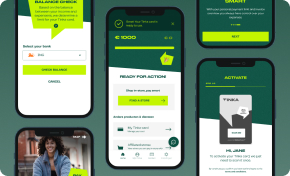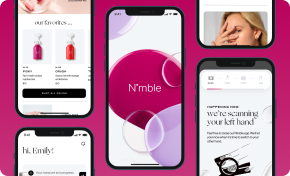Effective customer support is the lifeblood of any successful business. It plays a pivotal role in nurturing customer relationships and fostering trust and loyalty. In today’s rapidly changing world, businesses constantly seek innovative ways to elevate their customer support systems. One such innovation is the ChatGPT Customer Support. This AI-powered chatbot integration into customer support operations will ultimately drive growth and profitability for the company.
In this article, we will explore how ChatGPT can revolutionize automated customer service and why partnering with technical experts for integration is the ideal choice.
Redefine Your IT Strategy with Our Consultancy
Customized Solutions for Optimal Performance
Discover IT ConsultingUnderstanding the Role of ChatGPT Integration in Customer Support
ChatGPT, powered by artificial intelligence, is a remarkable tool for engaging in natural language conversations. Its ability to comprehend and generate human-like text sets it apart from traditional customer support tools. Unlike static FAQs or scripted responses, ChatGPT can adapt to each customer’s unique needs, creating a more personalized and dynamic interaction.
What truly distinguishes ChatGPT is its capacity for continuous learning and adaptation. Traditional customer support tools rely on static knowledge bases, while ChatGPT evolves over time. This makes it more proficient in responding to customer queries as it interacts with users. ChatGPT leverages deep learning and large-scale training to comprehend the nuances of language and context. This means that it can engage in fluid and contextually relevant conversations, adapting its responses to customers’ specific needs and inquiries. Unlike static responses and scripted interactions, ChatGPT creates a dynamic and personalized support experience, which can make a significant difference in customer satisfaction.
ChatGPT’s AI capabilities, dynamic learning, human-like conversations, scalability, 24/7 availability, multilingual support, and personalization set it apart from automated customer service tools. Its ability to adapt, learn, and provide a superior customer experience makes it a game-changing addition to any customer support system.
Boost Engagement Through Tailored UX/UI Design
Designing Impactful Digital Experiences That Foster Connection and Increase Sales
Discover UI/UX DesignBenefits of ChatGPT Integration in Customer Support
24/7 Availability for Customer Queries
One of the most significant advantages of having ChatGPT Customer Support integrated into your system is the ability to provide round-the-clock assistance. In today’s globalized world, where customers span different time zones and schedules, providing constant support is necessary. Customers no longer need to wait for office hours to get their questions answered or issues resolved. ChatGPT is always available, ensuring that your customers receive an immediate response when they need it the most, regardless of holidays and regular business hours.
Additionally, 24/7 support accommodates international customers and those with unconventional working hours, fostering inclusivity and expanding your global reach. Customers appreciate the convenience of accessing support when it suits them, leading to higher satisfaction and increased loyalty.
Personalized and Instant Responses Leading to Improved Customer Satisfaction
ChatGPT excels at providing personalized and instant responses to customer inquiries. It can remember previous interactions, making each conversation feel like a continuation rather than a new interaction. Unlike traditional automated customer service tools that often deliver generic or scripted replies, ChatGPT tailors its interactions to each customer’s unique needs and inquiries.
The result is a more engaging and satisfying customer experience. Customers no longer feel like they are interacting with a robotic script but engage in conversations that feel personal and relevant. This personalization creates a deeper connection with your brand, fostering a sense of being genuinely cared for.
How to Integrate ChatGPT in Your Customer Support
Using APIs for Integration Integrating ChatGPT into your customer support system is a streamlined process primarily relying on APIs (Application Programming Interfaces). These APIs allow your existing support infrastructure to communicate seamlessly with ChatGPT, enabling a cohesive customer experience.
Here’s a simplified step-by-step overview of the technical process:
- Prepare your database: Gather any relevant data on customer interactions. This can include chat logs, email exchanges, and any saved text, video, and phone transcripts.
- Access the ChatGPT API: Register and obtain an API key from OpenAI. This key serves as the authentication token to access the ChatGPT service.
- Integrate the API into Your System: The development team will need to implement the ChatGPT API into your customer support infrastructure. Depending on your system’s architecture, this may involve using programming languages such as Python, JavaScript, or others.
- Define Use Cases: Clearly define the specific use cases for ChatGPT within your customer support system. Determine where and how ChatGPT will be utilized to enhance customer interactions. Examples include handling common queries, providing product recommendations, or assisting with troubleshooting.
- Data Flow and User Input: Establish the data flow between your system and the ChatGPT API. Users’ input and queries should be sent to the API, and the responses should be processed and displayed within your customer support interface.
- Customization: Customize ChatGPT’s behavior to align with your brand’s tone and style. Fine-tune its responses to ensure they meet your company’s specific standards and adhere to industry regulations.
- Testing and Optimization: Rigorous testing is essential to ensure that ChatGPT integration works seamlessly and provides accurate responses. Continuously optimize the system based on user feedback and evolving customer needs.
Experience Our Skilled Development Teams
Elevate Your Projects with Skilled Software Development Professionals
Get Your Development TeamPotential Platforms Where ChatGPT Can Be Integrated
ChatGPT is a versatile tool that can be integrated into various platforms within your customer support ecosystem:
- Live Chat Systems: Website or Application live chat systems. It acts as a virtual support agent, responding to customer inquiries in real-time and offering 24/7 availability.
- Helpdesks: It can handle routine queries, gather information, and provide initial troubleshooting steps, freeing up your human agents to focus on more complex issues.
- Email Support: ChatGPT can assist in managing high volumes of customer emails. It can automatically categorize and prioritize emails, respond to common inquiries, and escalate complex issues to human agents.
- Social Media Platforms: ChatGPT can be integrated into your social media channels to respond to queries, provide information, and engage with customers in real time.
- Voice Assistants: For businesses with voice-enabled customer support channels. ChatGPT can be integrated into voice assistants, enabling customers to interact with your brand using natural language.
- Knowledge Bases: ChatGPT can be an intelligent addition to your knowledge base. It can help customers quickly navigate and find relevant information, offering a conversational search experience.
- E-commerce Platforms: In e-commerce, ChatGPT can offer personalized product recommendations based on customer preferences and browsing history, leading to increased sales and customer satisfaction.
Real-world Examples of ChatGPT Integrations in Customer Support
To illustrate the transformative power of ChatGPT in customer support, let’s look into some real-world examples of businesses that have successfully implemented ChatGPT to enhance their results.
Udacity’s ChatGPT Integration: Personalized Learning Experiences
The online course provider has announced the integration with ChatGPT in spring 2023. The benefit of it is that it can provide personalized guidance and feedback to students. It is designed to help them work through challenging problems by giving detailed explanations that can be customized to the individual learner. As a result, students will receive the support they need to succeed and achieve their goals, no matter how complex the subject matter may be. The platform’s ability to summarise concepts, decode technical jargon, and translate content will make learning a more accessible and enjoyable experience for all students, regardless of their language or background.
Shopify’s Use of ChatGPT: Enhancing E-commerce Support
This complete commerce platform offers you ChatGPT tools to start, grow, and manage your business. It provides in-depth support in creating your website, writing creative product descriptions, designing a marketing and communications strategy to sell your products, and reports on sales results and clients’ shopping behavior.
Canva’s Adoption of ChatGPT: Streamlining Creative Processes
One of the largest and most utilized online platforms that allows users to create a wide variety of visual content, from graphic designs and presentations to visual content for branding and infographics. Canva’s platform is designed to be user-friendly, making it accessible to a wide range of users, including individuals, small businesses, educational institutions, and larger organizations. It offers a vast library of templates, stock photos, illustrations, icons, and other design elements that users can customize to suit their needs. ChatGPT in Canva brings personalized visuals according to your description. All you have to do is connect your ChatGPT account with your Canva account using the dedicated plugin to create the design that fits your needs.
Some more success stories of integrating ChatGPT into a business activity are at:
- Morgan Stanley – organize its vast knowledge base.
- Yabble – deliver fast, nuanced insights from customer feedback.
- Be My Eyes – transform visual accessibility.
Overcoming Challenges in Integration
While the benefits of ChatGPT integration are clear, there can be challenges along the way. Successful integration requires careful consideration and the ability to address common challenges effectively. Here, we will discuss some of these challenges and potential solutions to ensure a smooth integration process.
API Integration Complexity
- Challenge: Integrating ChatGPT’s API into your existing system may require extensive changes to your codebase and infrastructure.
- Solution: Employ best practices in API integration. Use well-documented API endpoints and libraries provided by ChatGPT’s API documentation. Modularize your code to ensure easier maintenance and scalability. Testing is crucial to identify and resolve integration issues early in the process.
Scalability and Performance
- Challenge: Ensuring that ChatGPT can handle a growing volume of requests while maintaining fast response times.
- Solution: Implement efficient caching mechanisms to reduce redundant requests to the API. Consider using load balancing and serverless architectures to distribute requests evenly and scale resources as needed. Profile and optimize your code to improve response times.
Error Handling and Resilience
- Challenge: Handling errors gracefully and ensuring the system remains resilient despite unexpected issues.
- Solution: Implement robust error-handling mechanisms to handle API errors and edge cases gracefully. Set up redundancy and failover systems to ensure uninterrupted service in case of API outages or other issues.
Training and Customization
- Challenge: ChatGPT needs to be trained and customized to align with your brand’s tone, style, and specific customer support requirements.
- Solution: Devote time to training ChatGPT with your historical support data and interactions. Customize its responses to ensure they meet your company’s standards. Ongoing monitoring and refinement are essential to maintaining accuracy and relevance.
Data Privacy and Security
- Challenge: Handling sensitive customer information and maintaining data privacy can be a concern, especially in industries with strict regulations.
- Solution: Partner with a trusted AI integration provider like HyperSense, which prioritizes data security and compliance. Implement robust encryption and access controls to safeguard customer data.
Integration Complexity
- Challenge: Integrating ChatGPT into existing systems can seem complex, with the potential for technical issues and compatibility challenges.
- Solution: Collaborate closely with experienced developers and integration experts who understand both your customer support system and ChatGPT’s capabilities. Thoroughly test the integration to identify and resolve any issues early in the process.
Managing Customer Expectations
- Challenge: Customers may have varying expectations when interacting with ChatGPT and may not always understand its limitations.
- Solution: Set clear expectations from the outset by informing customers that they interact with an AI-powered chatbot. Provide guidance on the types of queries ChatGPT can handle and offer a seamless transition to human support when needed.
Multilingual Support
- Challenge: Ensuring accurate and effective multilingual support can be challenging if your customer base spans multiple languages.
- Solution: Train ChatGPT in multiple languages and use language detection to route queries to the appropriate language model. Continuously refine language models to improve accuracy and language coverage.
User Acceptance and Trust
- Challenge: Gaining user trust in ChatGPT’s capabilities and responses can take time, especially when transitioning from traditional support methods.
- Solution: Gradually introduce ChatGPT to customers and gather feedback. Highlight successful interactions and showcase its value in providing quick and accurate assistance. Consistently monitor and improve the chatbot’s performance to build trust over time.
Monitoring and Quality Assurance
- Challenge: Ensuring ChatGPT consistently delivers accurate and high-quality responses can be challenging.
- Solution: Implement a robust monitoring system to track chatbot performance, including response accuracy, user satisfaction, and efficiency metrics. Regularly review and update ChatGPT’s training data and responses based on real-world interactions.
Choosing the Right Integration Partner
- Challenge: Selecting the right partner for ChatGPT integration is crucial to success.
- Solution: Choose an experienced integration partner with a proven track record in AI integration, like HyperSense. Partnering with experts who understand your industry and specific requirements can significantly simplify the integration process and ensure its success.
Compliance and Regulations
- Challenge: Ensuring that ChatGPT interactions comply with industry-specific regulations and legal requirements.
- Solution: Work closely with legal and compliance teams to understand the regulatory landscape. Implement chatbot behaviors and responses that align with legal and regulatory standards. Conduct regular compliance audits and updates as regulations evolve.
Why Choose HyperSense for Your Integration Needs?
HyperSense, as a leading software development company, specializes in creating customized solutions tailored to the unique needs of its clients. With a deep understanding of AI technologies like ChatGPT, our team is well-equipped to seamlessly integrate ChatGPT into your customer support systems.
Our efforts go beyond integration by providing ongoing support and optimization for your ChatGPT-powered customer support. With us as your partner, you can harness the full potential of ChatGPT, ensuring that your customers receive the best possible services.
Embracing the Future: How ChatGPT Integration Revolutionizes Customer Engagement
In conclusion, ChatGPT integration offers businesses a game-changing solution to enhance their customer support. It ensures 24/7 availability, personalized and instant responses, and strengthens customer relationships. Though integration may pose technical challenges, it is manageable with the right expertise, APIs, and platform selection.
Real-world examples have shown that ChatGPT integration improves response times and increases sales. To maximize benefits, businesses must address data privacy, customer expectations, and quality assurance challenges. Embracing ChatGPT integration is a strategic move that can deliver timely, personalized, and efficient customer service.
Partnering with AI integration experts can help you unlock new levels of efficiency, relevance, and engagement for your audience. Embark on this transformative journey with us, and let’s work together to transform your content management and creation processes. Choose to stay ahead in the competitive digital landscape!
Redefine Your Business with Digital Transformation
Innovative Digital Solutions, Designed for Your Unique Needs
Explore Digital Transformation









